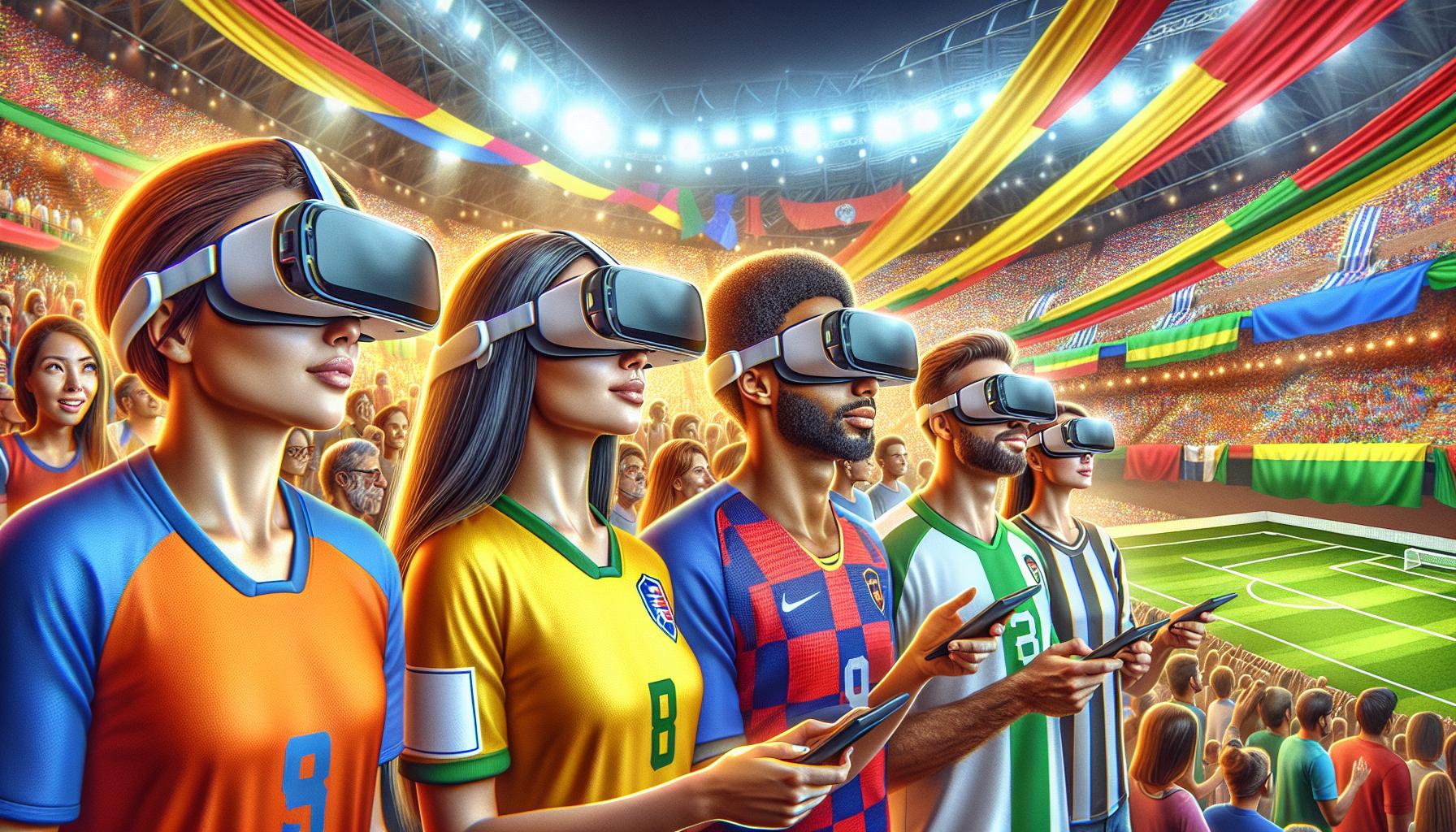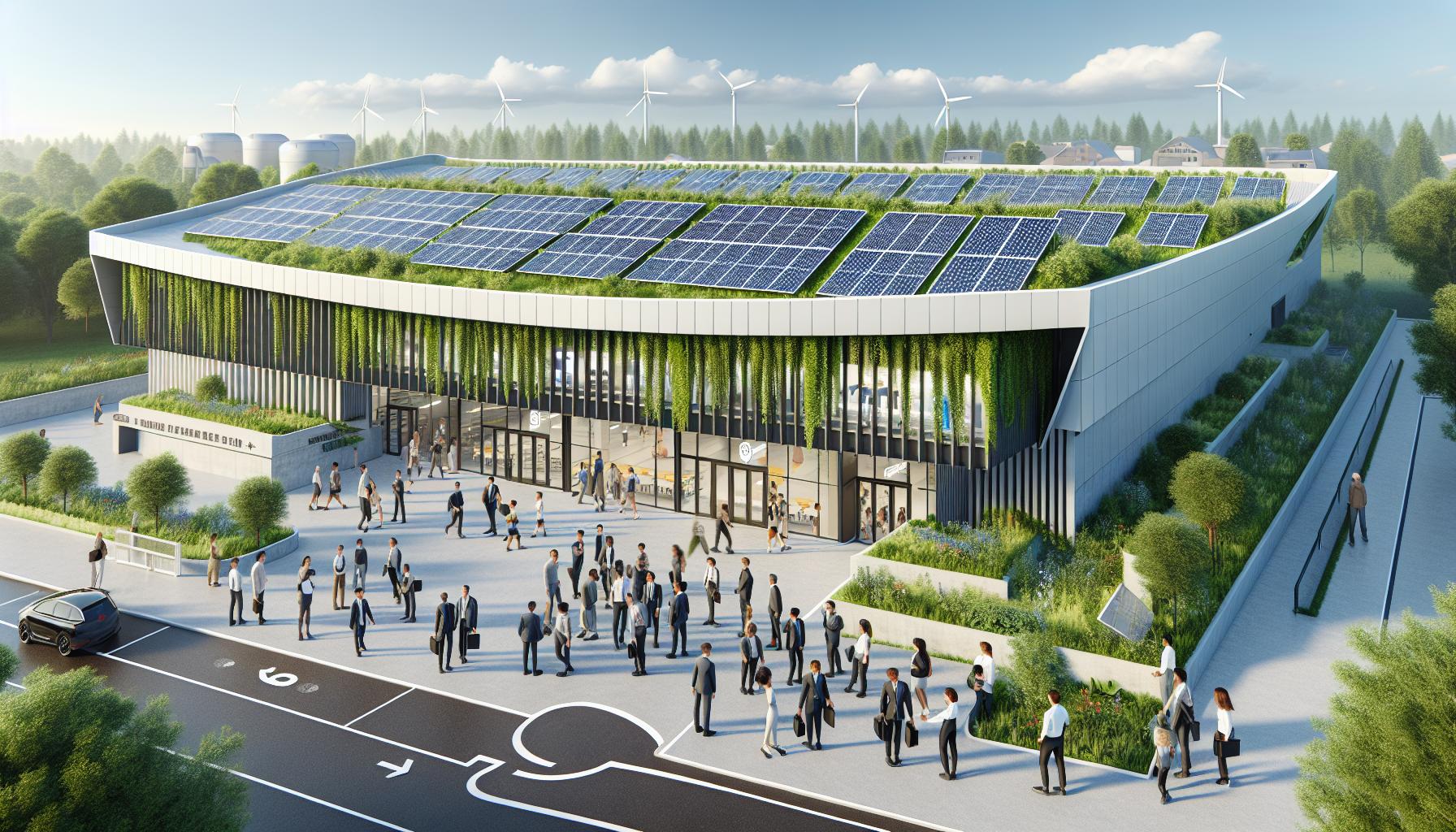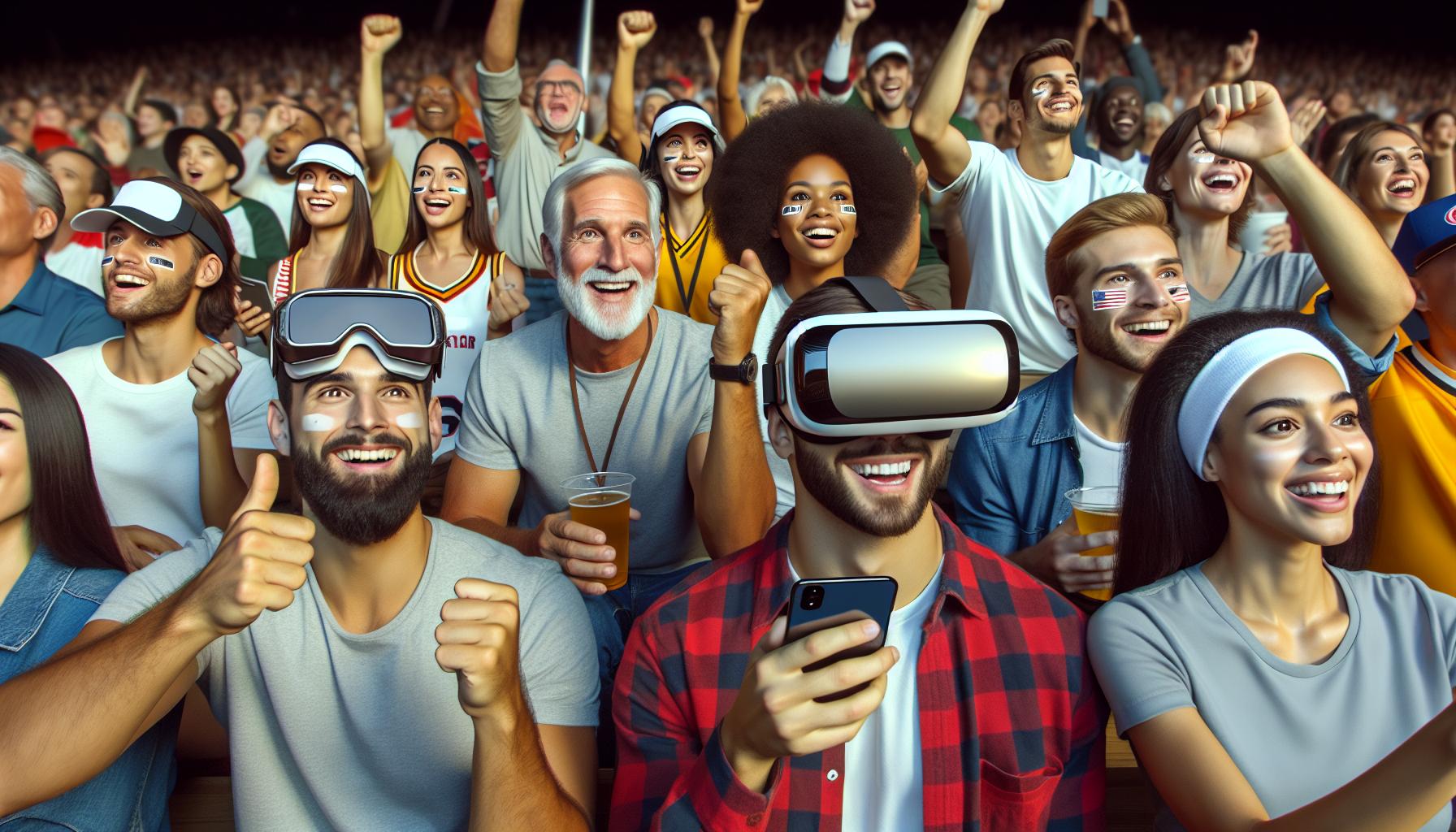The world of sports and events is evolving faster than a sprinter at the Olympics. From jaw-dropping technology to sustainability efforts that would make Mother Nature proud, the industry is buzzing with trends that are reshaping how fans and athletes connect. If you think it’s just about the game, think again—it’s a whole new ballgame.
With the rise of immersive experiences and the integration of digital platforms, the way people engage with sports is changing. Whether it’s virtual reality bringing fans closer to the action or eco-friendly events that put the planet first, staying in the loop is more crucial than ever. So, grab your favorite snack and settle in as we explore the latest trends that’ll have you cheering for more than just your team.
What Are Some Current Trends in the Sport and Event Industry?
Advanced technology plays a pivotal role in shaping the sports and events landscape. Fan engagement now relies heavily on mobile apps and digital platforms that enhance real-time interaction during live events. Virtual reality has emerged as a favored tool, enabling immersive experiences that allow fans to enjoy sports from unique perspectives.
Sustainability efforts are also gaining traction. Many organizations now prioritize eco-friendly practices in event planning, such as utilizing renewable energy sources and reducing waste. These initiatives not only resonate with environmentally conscious fans but also set industry standards for responsible management.
Data analytics significantly influences decision-making processes. Teams analyze player performance and fan behavior to inform strategies for improvement. This data-driven approach ensures that organizations can adapt to changing preferences and enhance the overall spectator experience.
Diversity and inclusion are key focuses as well. More organizations actively promote equitable representation within teams and among fans. Initiatives aimed at increasing participation from underrepresented groups contribute to a richer and more varied atmosphere at events.
Headlining events in urban areas have grown in popularity. Hosting major sporting events in cities boosts local economies, promotes tourism, and increases community engagement. These events often feature partnerships with local businesses to create a festive environment that welcomes both locals and visitors.
E-sports continue their rapid expansion, captivating younger demographics. Competitions attract millions of viewers online, underscoring the shift in leisure activities. This trend demonstrates the necessity for traditional sports organizations to adapt and engage with this emerging audience.
Experiential marketing has taken center stage. Brands increasingly focus on creating memorable moments for fans, integrating their products into the overall event experience. This practice fosters a deeper connection between consumers and brands, enhancing loyalty and driving sales.
Technology in Sports and Events

Advanced technology plays a pivotal role in reshaping the sports and events landscape. Innovations enhance fan engagement and elevate overall experiences for athletes and spectators alike.
Virtual Reality Experiences
Virtual reality offers immersive environments, enabling fans to connect with events in unprecedented ways. Events incorporate VR technology, allowing attendees to experience games or concerts from unique perspectives. Enhanced interaction occurs through realistic simulations, providing fans with opportunities to engage with athletes and performances more intimately. Various organizations utilize VR to cater to different demographics, ensuring accessibility across age groups. VR experiences spark enthusiasm, drawing in audiences who seek more than traditional viewing options.
Data Analytics and Performance Tracking
Data analytics streamlines performance tracking and informs strategic decisions in sports. Teams collect extensive data on player metrics and fan engagement to refine training regimens. Performance optimization occurs through detailed analysis of game statistics, allowing coaching staff to adapt tactics in real-time. Organizations leverage fan behavior insights, enhancing marketing strategies and driving ticket sales. Personalized experiences result from targeted data usage, connecting teams with their audiences on a deeper level. Tracking enables continual improvement, positioning teams to achieve competitive advantages in their leagues.
Sustainability Practices

Sustainability practices are gaining traction in the sports and event industry. Organizations increasingly prioritize eco-friendly initiatives that resonate with fans.
Eco-Friendly Venues
Eco-friendly venues adopt sustainable architecture and design principles. These facilities utilize renewable energy sources, such as solar panels or wind turbines, significantly lowering their carbon footprint. Furthermore, many venues incorporate green technologies, including water-saving fixtures and energy-efficient lighting. Waste reduction strategies, like recycling and composting, also play a key role in their environmental impact. Additionally, some venues invest in sustainable materials for construction and landscaping, creating spaces that promote environmental stewardship.
Carbon Neutral Events
Carbon neutral events strive to balance emissions through various offsetting strategies. Planners assess the event’s overall carbon footprint, measuring everything from travel to waste. Afterward, they purchase carbon offsets, funding projects that reduce greenhouse gases, such as reforestation or renewable energy initiatives. Various organizations are also implementing local sourcing practices, minimizing transportation emissions while supporting local economies. Participants can help by using public transportation or carpooling, further reducing environmental impact. Hosting carbon neutral events showcases a commitment to sustainability, attracting eco-conscious sponsors and attendees.
Fan Engagement Strategies

Fan engagement strategies continue to evolve, utilizing cutting-edge technology and innovative approaches to deepen the connection between audiences and events.
Social Media Innovations
Growing platforms enhance real-time interaction through features like polls and live chats. They allow fans to share their experiences instantly, facilitating community building around events. Services leverage algorithms to personalize content, ensuring fans receive updates that resonate with their interests. Influencers play a crucial role in amplifying brand messages, reaching wider audiences through targeted campaigns. Integration of augmented reality experiences creates opportunities for fans to engage through creative filters and effects. Analytics tools provide insights into fan behavior, driving more effective communication strategies.
Interactive Experiences at Events
Cutting-edge technologies enrich live events through interactive installations and engaging activities. Attendees participate in virtual reality experiences, immersing themselves in unique environments related to their favorite sports. Fan zones often feature gamification elements, encouraging skill challenges and social sharing. Live polling and fan voting create real-time engagement with event outcomes, enhancing excitement. Mobile apps provide interactive maps and schedules, simplifying the event experience for attendees. Organizations focus on safety and personalization, ensuring fans enjoy tailored experiences while feeling secure.
Health and Safety Protocols
Health and safety protocols play a crucial role in shaping the sports and event industry. The ongoing focus on these measures reflects the industry’s commitment to protecting participants and attendees alike.
Post-Pandemic Precautions
Post-pandemic precautions define current health practices. Organizations implement measures such as contactless ticketing and health screenings at entry points. Frequent sanitization of venues, including seating areas and restrooms, ensures a safe environment. Many event planners utilize digital platforms for remote participation to minimize crowd size. Additionally, clear communication regarding health policies reassures attendees about their safety.
Enhanced Security Measures
Enhanced security measures complement health protocols. Venues now deploy advanced surveillance systems, ensuring effective monitoring of crowd behavior. Staff undergo training to identify and respond to potential threats proactively. Bag checks and metal detectors become standard practice to maintain security. Emergency response plans also receive updates, preparing organizations to handle various scenarios efficiently. These measures improve both safety and attendee confidence, fostering a secure atmosphere for events.
Diversity and Inclusion Initiatives
Diversity and inclusion are central to the evolution of the sports and event industry. Organizations are increasingly implementing strategies to ensure equitable representation across all levels.
Gender Equality in Sports
Gender equality in sports continues to gain momentum. Many organizations are committed to closing pay gaps between male and female athletes. Sponsorship opportunities for women’s sports are expanding. Furthermore, initiatives provide funding and resources specifically for female athletes, fostering growth in these programs. High-profile competitions now prioritize female participation, creating role models that inspire future generations. Commitments from sponsors and media outlets help elevate visibility, thus encouraging more balanced representations.
Accessibility in Events
Accessibility in events plays a crucial role in creating inclusive environments. Venue operators are prioritizing designs that accommodate individuals with disabilities. Features such as wheelchair-accessible seating and assistive technologies enhance the experience for all attendees. Staff training ensures a welcoming atmosphere for everyone, regardless of their needs. Additionally, transportation services are being adjusted to provide easier access to venues, making it simple for attendees to participate. Ongoing partnerships with advocacy groups further strengthen efforts to promote inclusivity within the sports and events landscape.
Sports and Event Industry
The sports and event industry is undergoing a remarkable transformation driven by technology and sustainability. As organizations embrace advanced tools and eco-friendly practices, they’re reshaping how fans and athletes connect. The rise of immersive experiences and innovative fan engagement strategies highlights the industry’s commitment to enhancing spectator enjoyment.
Moreover, the focus on diversity and inclusion reflects a broader societal shift towards equitable representation. As e-sports and experiential marketing gain traction, the industry continues to evolve, creating exciting opportunities for all stakeholders. Staying informed about these trends is essential for anyone looking to navigate the dynamic landscape of sports and events.



